PCOS is one of the most common hormonal disorders affecting women. Approximately five to 10 percent of childbearing age females have this condition, which can impact their fertility. At HRC Fertility, patients with PCOS comprise a significant part of our practice.
We confirm a PCOS diagnosis if a female patient has two of the following three symptoms: absence of ovulation, symptoms of blood levels of high androgens (male sex hormones, such as testosterone) and/or multiple ovarian cysts on pelvic ultrasound.
Insulin resistance is a major culprit in creating PCOS symptoms, and it affects 50-70 percent of women with PCOS. Insulin resistance results in a build up of insulin that cannot be used to break down glucose (sugars). Insulin resistance not only makes it harder to lose weight but also increases the risk for diabetes. Additionally, high insulin levels cause the ovaries to produce male hormones that can cause acne and hair growth.
How a healthy PCOS lifestyle helps
Weight gain related to insulin resistance can be somewhat regulated by a low-carbohydrate diet, a more active lifestyle and stress reduction.
Some of the hallmarks of a PCOS-friendly diet are:
- consuming low carbohydrate foods balanced with green leafy vegetables and lean proteins
- eating five smaller meals throughout the day to stabilize blood sugar
- avoiding carbohydrates, processed food, alcohol, sugar, soy and gluten
Nutritionists recommend trying to lose weight slowly for the best hopes of long-term weight loss. Research shows that even a loss of five to 10 percent of body weight can make a difference in keeping PCOS symptoms at bay. Weight loss can reduce insulin resistance, regulate menstrual cycles, restore ovulation, reduce the presence of male hormones and improve overall health by reducing risk factors for diabetes and heart disease.
Exercise and stress reduction are other important components of a healthy PCOS lifestyle. They can assist with weight reduction while improving mental and emotional health. Regular exercise, even without a significant loss of body fat or weight, improves insulin resistance and other PCOS symptoms.
Women without weight issues also benefit from these lifestyle changes
Not all women with PCOS are overweight. In fact, up to 50 percent of women with PCOS may not fit the stereotypical profile of being prone to weight gain. Medical professionals have different perspectives about the reasons for this. Some believe lean woman with PCOS cannot properly produce and regulate insulin, but to a lesser extent than heavier patients. Women who have lost weight may still have insuline-producing cells. Other experts think the ovaries of these women can be prone to excess testosterone production rather than insulin. Though there may be disagreements about the causes of PCOS for leaner patients, most medical professionals agree that a PCOS lifestyle is beneficial for all.
PCOS lifestyle and fertility
Integrating a low-carb diet and a moderate amount of exercise into a long-term health and fitness plan can decrease insulin resistance for women with PCOS. In turn, their menstrual cycles may become regular, restarting ovulation and decreasing symptoms like hair growth and acne caused by male hormones. For many women, this is all that’s needed to help them get pregnant.
When lifestyle modifications do not induce regular ovulation, doctors can prescribe medications like metformin to help the body use glucose more efficiently, and/or fertility drugs such as clomid and gonadotropins, which are often the first line treatment to induce ovulation. For those not trying to conceive, birth control pills can regulate menstruation and prevent the build up of the endometrial lining, as well as keep acne and hair growth under control.
HRC Fertility can refer our patients to nutritionists who specialize in helping patients plan and implement a PCOS-friendly diet. Please let us know how we can assist you.
References:
https://jeanhailes.org.au/health-a-z/pcos/healthy-living
http://www.huffingtonpost.com/heather-huhman/frustrating-facts-about-pcos_b_7686030.html
http://natural-fertility-info.com/lean-pcos.html
http://www.diabetes.co.uk/insulin-resistance.html
https://pcos.com/pcos-and-lean-women-are-you-confused/

